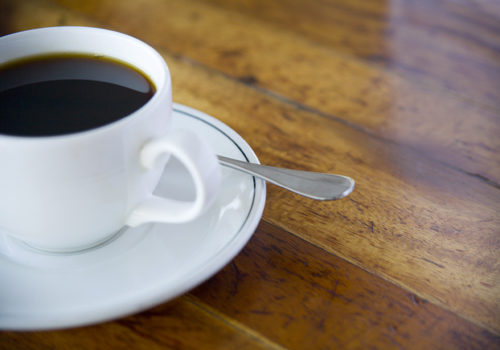Additionally, while not classified as a supplement in the sports nutrition field, there are several other “supplements” that are debated about, including caffeine and other stimulants. Sugarek MacDonald says, “It is ironic that even though bodybuilders and athletes treat their bodies like temples, sports nutrition brands continue to load their supplements with unhealthy ingredients (e.g., excess protein, excess stimulants, excess sugar, artificial flavors, sweeteners and colors, etc.).”
But, where would a product like caffeine fall in the supplement debate? There are some that believe natural caffeine sources help athletic performance, including Andrews, who says that for mental clarity and focus, products such as caffeine are beneficial, especially for athletes that are looking to consume additional antioxidants.
Zapp says that botanical caffeine sources give consumers more than just antioxidants, they also “contain polyphenols, catechins or even fiber and protein that aid in healthy energy.” Two examples are organic green tea extract for sustainable energy and green coffee extracts.
One website claims that caffeine is known “to help athletes train harder and longer. Caffeine stimulates the brain and contributes to clearer thinking and greater concentration” (19). But, Clouatre argues that it only improves athletic performance if it is used in large quantities, something normally done during competitions. And, this is likely not safe.
According to Rice University, while caffeine is one of the most widely used stimulants in the world and studies have shown that it can enhance performance in endurance sports, there appears to be no benefit in short-term, high-intensity exercise (20). This is because caffeine “mobilizes fat and encourages working muscles to use it as a fuel. This delays the depletion of muscle glycogen and allows for a prolongation of exercise” (20).
Powdered caffeine, intended to be mixed into drinks at home by shoppers, is something that many industry members don’t believe should be sold at all for safety reasons (21).
While this is a debate that will continue, Richardson acknowledges that millions of people will drink caffeine everyday. He recommends that “if you are going to use caffeine as a workout aid, just understand your limits and stay below them.”
As an alternative, Clouatre suggests people utilize specialized ginseng extracts, l-tyrosine, schisandra berry extract, ashwagandha extract and astaxanthin as healthy energy sources.
Another form of natural energy customers should be consuming is electrolytes. “If you’re perspiring and exercising for 20 or more minutes, then replenishment of electrolytes is important to avoid cramping and get the body back in balance after strenuous exercise,” says Stover.
According to Bingham, “Electrolytes are not only essential, they’re the foundation for performance and endurance.” He adds that they are necessary to keep cells hydrated and to transfer nutrients to the cells.
While all electrolyte drinks do not contain all five of the key electrolytes (sodium, potassium, calcium, magnesium and chloride), Andrews says, “Replenishing electrolytes during exercise is important to avoid cramps, swelling of hands and legs and dizziness.”
Regardless of your athletic expertise or competition level, Marr recommends athletes to consult with a sports nutritionist, trainer or coach to find an electrolyte supplement “tailored to individual needs.” WF
References
1. ABC News, “Schwarzenegger Has No Regrets About Steroid Use.” abcnews.go.com/ThisWeek/Health/story?id=532456. Feb. 25, 2005, accessed July 15, 2015.
2. KeepSupplementsClean.org, accessed July 27, 2015.
3. K. Matsumoto et al., “Branched-Chain Amino Acid Supplementation Attenuates Muscles Soreness, Muscle Damage And Inflammation During An Intensive Training Program,” J. Sports Med. Phys. Fitness, 49 (4), 424-431 (2009).
4. Medical News Today, “Whey Protein: Health Benefits and Side Effects.” www.medicalnewstoday.com/articles/263371.php, June 17, 2015, accessed July 16, 2015.
5. J.M. Joy et al., “The Effects Of 8 Weeks Of Whey Or Rice Protein Supplementation On Body Composition And Exercise Performance,” Nutr J. 12, 86 (2013)
6. B. Campbell et al., “International Society of Sports Nutrition Position Stand: Protein And Exercise,” J. Int. Soc. Sports Nutr. (2007).
7. T. B. Conley et al., “Effect of Food Form On Postprandial Plasma Amino Acid Concentrations In Older Adults,” Brit. J. Nutr. 106 (2), 203-207 (2011).
8. Medical News Today, “Creatine: Benefits and Health Risks.” www.medicalnewstoday.com/articles/263269.php, June 24, 2015, accessed July 21, 2015.
9. University of Maryland Medical Center, “Creatine,” umm.edu/health/medical/altmed/supplement/creatine, accessed July 21, 2015.
10. E. Rawson et al., “Scientifically Debatable: Is Creatine Worth its Weight?” Sports Science Exchange, 16 (4), 2003, accessed July 27, 2015.
11. D. F. Pauly et al., “D-Ribose as a Supplement for Cardiac Energy Matabolism.” Journal of Cardiovascular Pharmacology and Therapeutics, 5(4), 249-258 (2000).
12. R. M. Hobson et al., “Effects of Beta-Alanine Supplementation On Exercise Performance: A Meta-Analysis.” Amino Acids, 43 (1), 25-37 (2012).
13. G Spiller et al., “Effect of Daily Use of Natural Astaxanthin on C-Reactive Protein.” Health Research and Studies Center, Los Altos, CA. Access at www.astaxanthin.org.
14. A. C. Fry, “Astaxanthin Clinical Trial for Delayed Onset Muscular Soreness.” Report I, Memphis, Tenn.: University of Memphis, Exercise Biochemistry Laboratory (2001).
15. C. Kerksick et al., “International Society of Sports Nutrition Position Stand: Nutrient Timing,” J. Int. Soc. Sports Nutr. 5 (17), 2008.
16. M. Gleeson, “Dosing and Efficacy Of Glutamine Supplementation In Human Exercise And Sport Training.” J. Nutr. 138 (10), 2045S–2049S (2008).
17. K. S. Kuehl et al., “Efficacy of Tart Cherry Juice In Reducing Muscle Pain During Running: A Randomized Controlled Trial,” J. Int. Soc. Sports Nutr. 7 (17), (2010).
18. Lonza Nutrition, www.lonza.com/products-services/consumer-care/nutrition/human-nutrition/health-ingredients/carnipure.aspx, accessed July 29, 2015.
19. Active, “The Facts About Caffeine And Athletic Performance,” www.active.com/articles/the-facts-about-caffeine-and-athletic-performance, accessed July 15, 2015.
20. Rice University, “Caffeine and the Athlete,” www.rice.edu/~jenky/sports/caffeine.html, accessed July 15, 2015.
21. Council for Responsible Nutrition, “Caffeine,” http://crnusa.org/caffeine, accessed July 27, 2015.
22. S.M. Phillips, "Protein requirements and supplementation in strenght sports." Nutrition 20 (7-7), 689-695 (2004).
23. D. K. Layman, "Dietary Guidelines should reflect new understandings about adult protein needs." Nutr and Metab 6 (12), (2009).
Published in WholeFoods Magazine, September 2015










